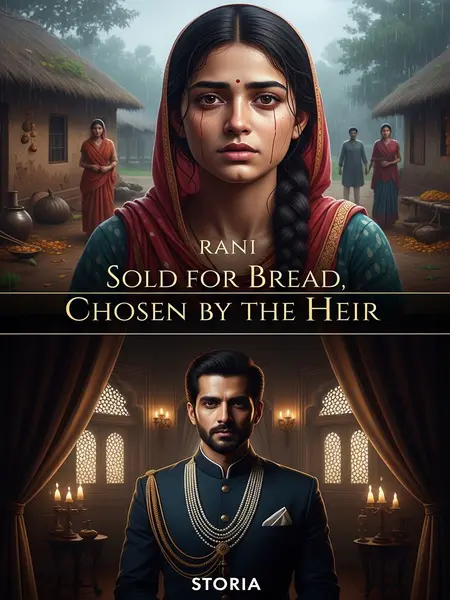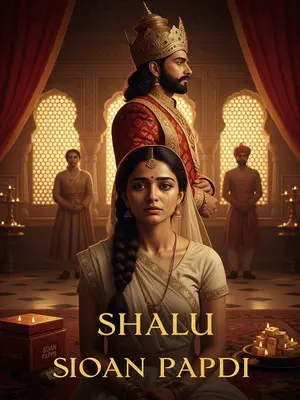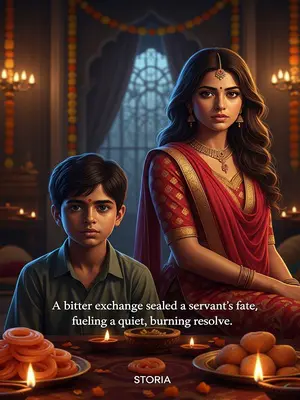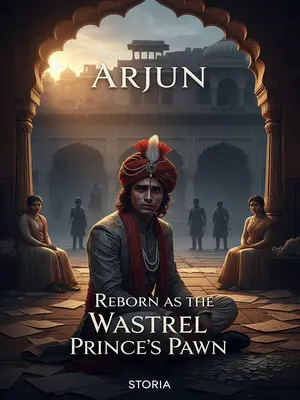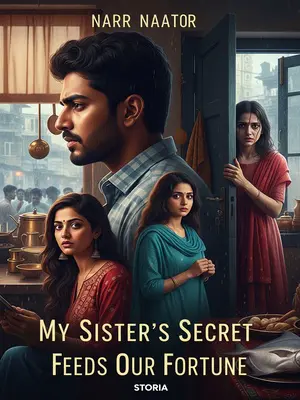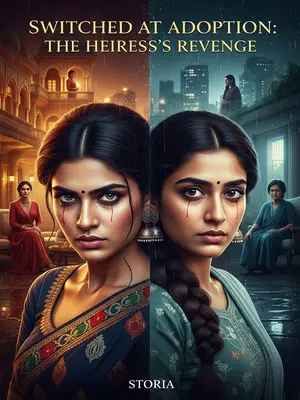Chapter 3: The Sharma Bungalow
The traffickers locked us in a small colony house. The five prettiest girls were taken first. In the days that followed, the rest were picked off one by one.
I remember the fear in our eyes as the men came, choosing girls like mangoes at the bazaar. I clung to my bundle, shrinking into the wall, praying to every god I knew. Each time a girl left, the room grew quieter, emptier. I wondered if I’d be next. The silence pressed down on us like a heavy quilt.
I was sold to the Sharma family in the city’s western quarter. Their bungalow was imposing, with iron railings and bougainvillea spilling over the walls. The city air was pungent with spices and car horns. Inside, servants bustled. The driver, a thin man with paan-stained teeth, looked at me with tired indifference. It struck me that the world was full of people too weary to be shocked anymore.
I was assigned as a rough maid to the second young lady’s section—mostly sweeping the yard and running errands.
I was given a faded saree, old slippers, and told to show proper respect. Aarti Didi, the senior maid, showed me how to fetch water, scrub the brass plates till they shone. My hands blistered, but the work was honest, the food hot, and no one raised a hand against me. At night, I curled up in a corner, clutching my bundle, grateful that the darkness was not dangerous.
The Sharma household was simple and quietly efficient. Madam ruled the kitchen, but was fair. Shanta Bai, the old maid, kept to herself, always humming filmi songs as she chopped vegetables. The hush in the house was the hush of old money, or maybe recent fear. Everyone seemed to know their place, and though the rooms were big, there were invisible lines I never dared cross.
All three young masters were handsome, but the eldest looked like a film hero descended to earth. When he visited, the whole house seemed brighter. He had an effortless charm, but also a seriousness in his eyes, a weight that sat uneasily on his shoulders. The younger brothers mimicked him, but they were just boys. He was the one everyone watched, even the servants who pretended not to care.
The eldest young lady, Nandini didi, was thirteen, sharp-eyed and quick-tongued, always lost in her books. The second young lady, Priya, was seven, round and fair like a lucky doll, always laughing, the youngest in the family and a little simple-minded, so everyone doted on her. Priya called me "Rani Didi" from the start, and that simple affection became my anchor.
The Sharma family treated their staff well. In the year since I arrived, I’d put on weight. Madam even gave us a small salary each month, with bonuses at Diwali and Holi. I wrapped my savings in an old dupatta, tucked beneath the Ganesh idol, counting and recounting, dreaming of sending it home, imagining my mother’s relief.
Compared to home, this was nothing. In spare moments, I learned knots, needlework, and chatted with the other girls. The ache of leaving home dulled as routine set in. I learned to stitch a straight hem, tie a perfect parandi, and which jokes made Shanta Bai laugh. In the kitchen, with the scent of tadka and old stories, I found a rhythm and a new sense of purpose.
